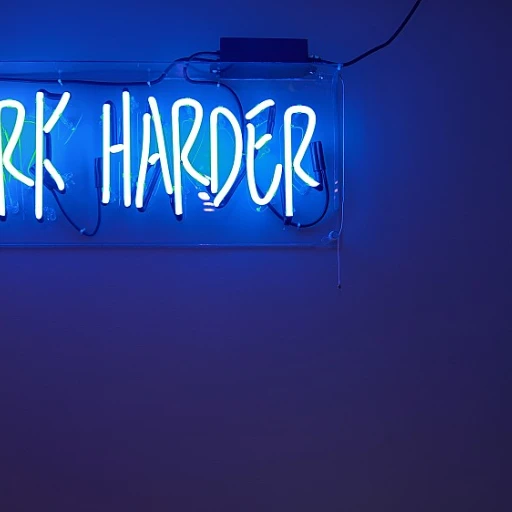The Role of CHROs in the Age of AI
CHROs: Navigating AI Landscape in HR
In today's rapidly evolving business environment, the role of Chief Human Resources Officers (CHROs) has been significantly transformed. No longer just the gatekeepers of corporate culture and employee wellbeing, CHROs are now at the helm of integrating groundbreaking AI technologies into human resources practices. This shift requires an adaptation that is both strategic and tactical, focusing on how AI can enhance various HR processes, from recruitment to employee engagement and beyond.
The advent of AI in human resources has presented CHROs with an opportunity to redefine traditional roles and embrace new responsibilities. They are tasked with balancing the potential of AI to improve HR functions with the essential need to maintain a human touch. Striking this balance calls for a keen understanding of AI capabilities, potential pitfalls, and the ethical considerations at play. Moreover, CHROs must ensure that AI integration aligns with organizational values and goals.
Furthermore, embracing AI requires a cultural shift within organizations, spearheaded by CHROs who champion adaptability and innovation. They are responsible for fostering an environment where AI is seen not as a replacement for human intelligence but as a tool that empowers employees and enhances productivity. By focusing on change management and continuous learning, CHROs can ensure that the workforce is ready to engage with AI-driven technologies. For more insights on how CHROs influence the employee experience through innovative leadership, explore this
resource on shaping employee experience.
As the AI landscape continues to evolve, CHROs must remain agile and proactive. They need to evaluate the impact of AI on recruiting practices, employee engagement, and talent management, setting the stage for AI-driven transformations that pave the way for more efficient and intuitive HR processes. The responsibilities of CHROs in this era extend beyond mere implementation; they encompass a vision for the future of human capital management that integrates technological advancements while preserving the organization's soul.
AI-Powered Talent Management
Harnessing AI for Strategic Workforce Planning
The integration of artificial intelligence into talent management is revolutionizing how organizations plan and deploy their human resources. AI algorithms can swiftly analyze vast amounts of data to predict trends in workforce needs, offering a significant advantage in strategic workforce planning. This capability allows Chief Human Resource Officers (CHROs) to anticipate skills gaps and address them proactively through strategic hiring and personalized training programs.
As AI becomes more sophisticated, it aids CHROs in identifying high-potential employees more effectively, ensuring that an organization can retain top talent. This approach not only fosters a culture of growth and development but also enhances the overall performance of the workforce. By aligning talent management strategies with AI-driven insights, companies can create a more agile and adaptive workforce, ready to meet future challenges.
To delve deeper into how CHROs are shaping the employee experience through data-driven methods, please visit
this resourceful article. It provides insights on leveraging AI to enhance employee satisfaction and productivity, a vital component of modern HR strategies.
Personalized Learning and Development Opportunities
AI's potential in crafting personalized learning and development pathways for employees is immense. By analyzing an individual's performance data, AI systems can suggest custom training programs that align with both the employee’s career aspirations and the organization’s needs. This tailored approach not only boosts employee engagement but also enhances retention rates, as employees feel more valued and supported in their personal growth.
Moreover, AI-powered platforms can continuously assess the effectiveness of these training programs, making real-time adjustments to meet evolving demands. This dynamic process ensures that the workforce remains on the cutting edge, equipped with the necessary skills to drive innovation and growth within the organization.
In addition, the use of artificial intelligence in automating routine administrative tasks allows HR professionals to focus more on strategic initiatives. This shift ultimately elevates the role of HR within the organization, positioning CHROs as key leaders in driving business success through human capital management.
Enhancing Employee Experience with AI
Revolutionizing the Employee Journey
In the rapidly evolving landscape of human resources, enhancing the employee experience has become a crucial aspect of attracting and retaining top talent. Artificial Intelligence (AI) has emerged as a game-changer in this domain, offering personalized and efficient solutions that improve various touchpoints throughout the employee journey.
AI technologies are now capable of streamlining the onboarding process, transforming a typically cumbersome experience into a seamless introduction to the company culture and job role. Chatbots, for instance, provide new hires with instant responses to common queries, reducing the burden on HR teams and allowing for a smoother transition.
Moreover, AI-driven platforms can continuously gather feedback from employees, helping organizations to identify areas for improvement and foster a more engaging workplace environment. By analyzing sentiment and feedback in real-time, HR departments can take proactive measures to address concerns and enhance job satisfaction.
Performance management is also being revolutionized by AI, which leverages data to offer relevant insights and personalized developmental paths for employees. This not only aids in career progression but also aligns employee goals with business objectives, creating a mutually beneficial environment.
However, the integration of AI into employee experience initiatives must be approached with sensitivity. It's important to balance automation with the human touch to ensure that technology complements, rather than replaces, human interaction. This balance is vital in maintaining trust and morale within the workforce. For more on crafting an innovative workplace culture, the integration of AI can aid in this endeavor by
encouraging risk-taking, enriching the employee experience through calculated and innovative approaches.
Embracing AI is not just about adopting new technologies but is also about reshaping the way organizations interact with their workforce. By enhancing the employee experience, companies not only boost individual satisfaction and efficiency but also cultivate a thriving workplace culture that drives overall organizational success.
Balancing Privacy and Data in AI
Navigating the AI Privacy Landscape
The integration of artificial intelligence in human resources raises important questions about privacy and data security. As CHROs lead the charge in adopting AI-powered solutions, they must also steer the company through the intricate web of data protection and employee privacy concerns.
One of the main challenges is maintaining a balance between leveraging AI's predictive capabilities and ensuring that employee data is handled with the utmost care. The implementation of AI tools in recruitment, for example, often involves processing large volumes of personal data to identify potential candidates effectively. This raises concerns about consent, data anonymization, and transparent communication.
Establishing Trust Through Transparent Data Practices
To address these concerns, HR departments must develop comprehensive data governance policies. Transparency is key—employees should be informed about what data is being collected, how it is used, and the measures in place to protect their personal information. By fostering a culture of trust and openness, organizations can reassure employees that their privacy rights are safeguarded.
Moreover, CHROs must collaborate with IT and legal teams to ensure compliance with evolving data protection regulations, such as the General Data Protection Regulation (GDPR) in the EU and the California Consumer Privacy Act (CCPA) in the United States. These frameworks provide guidelines for the ethical handling of employee data and AI applications, reinforcing the need for stringent data privacy measures.
Strategically Harnessing AI While Upholding Privacy
When done correctly, AI can significantly elevate HR processes without compromising employee privacy. Approaches such as data minimization, where only essential data is collected, and pseudonymization, which involves de-identifying data, allow for maintaining compliance while reaping the benefits of AI technologies.
As organizations continue to explore AI solutions, CHROs face the opportunity to lead the industry by example, demonstrating that a strategic and ethical approach to data privacy can coexist with technological advancement. By prioritizing privacy, they not only protect their organization but also enhance the employee experience, leading to a more satisfied, engaged workforce.
Real-World Use Cases of AI in HR
AI Integration in Everyday HR Practices
The world of human resources continues to see profound transformations as companies increasingly adopt artificial intelligence (AI) technologies. In previous discussions, we examined how Chief Human Resources Officers (CHROs) are navigating the new landscape by harnessing AI capabilities to manage talent effectively and enhance employee experiences. But how is AI already making a tangible impact in the real world of HR?
AI has been integrated into numerous everyday HR practices that streamline processes and provide better insights. From automating tedious, time-consuming administrative tasks to facilitating more informed decision-making, AI's presence is felt in various aspects of human capital management.
One prominent example is in the recruitment process. AI-powered tools can swiftly analyze vast sets of resumes, identifying the most qualified candidates without the unconscious biases that might affect human recruiters. This not only speeds up the hiring process but also promotes a more diverse workforce by focusing solely on qualifications and experience.
Another area where AI is making waves is in predictive analysis for workforce planning. Leveraging historical data, AI can forecast future staffing needs, identify potential skill gaps, and even anticipate turnover trends. This foresight enables HR leaders to proactively address potential issues before they arise, making strategic adjustments to maintain workforce stability.
Additionally, AI's role in onboarding has significantly reduced the time it takes for new employees to become productive. AI-driven chatbots can assist new hires by answering questions, providing necessary resources, and guiding them through onboarding processes. Such efficiency leads to a better employee experience and quick adaptation to the company's culture and operations.
Businesses are also realizing the benefits of AI in employee engagement and feedback. Tools equipped with AI algorithms can continuously analyze employee sentiments and engagement levels through surveys and feedback forms, alerting HR teams to any potential morale issues. This enables organizations to intervene promptly, fostering a more supportive and engaging work environment.
As we continue to explore the many facets of AI in HR, it becomes clear that these real-world use cases are just the beginning. With its potential to revolutionize traditional HR practices, AI stands poised to enhance every level of human capital management.
The Future of AI and Human Capital Management
Embracing the Future: AI and Human Capital Management
As we explore the evolving landscape of AI in human resources, it's clear that the innovations in AI-powered talent management and enhanced employee experiences are laying the groundwork for the future of human capital management. CHROs, as pivotal players in navigating this transformation, are redefining roles in an era where AI is seamlessly integrated into various HR functions.
The role of machine learning and data analytics is becoming increasingly prominent, offering valuable insights into workforce trends and employee performance. Such tools empower HR leaders to make data-driven decisions, enhancing productivity and ensuring a more tailored employee experience. The capabilities of AI extend beyond mere automation; they're about creating strategies that foster employee engagement and career development effectively.
Security and privacy remain at the forefront of AI implementation, a topic we've delved into thoroughly. Protecting employee data while harnessing the power of AI is a fine balancing act, demanding adherence to regulatory frameworks and ethical guidelines. This is critical to earning trust and ensuring that AI systems are both responsible and beneficial to employees.
Real-world case studies remind us that the integration of AI into HR is not a distant future concept but a present-day reality. These examples provide us with practical lessons and highlight the potential of AI to revolutionize human capital management. Companies leveraging AI are setting benchmarks in enhancing their HR practices, with outcomes that reflect in improved employee satisfaction and organizational efficiency.
Looking ahead, the fusion of AI technologies with human insights will redefine what we know as human capital management. CHROs and HR teams are called to lead this charge by adopting a mindset that embraces change, innovation, and continuous improvement. The future holds exciting possibilities, and those who adapt will undoubtedly emerge as leaders in the domain of thriving workplaces.








